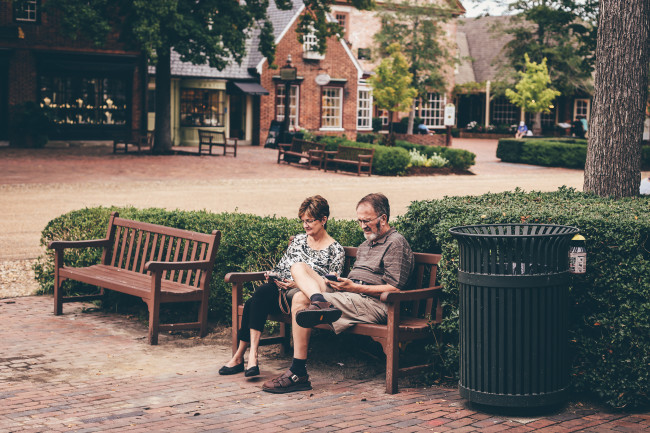The Christopher Wren Association for Lifelong Learning is “a way to expand your horizons” according to Chuck Buell, who has been taking courses in the program for 12 years now.
The CWA is a self-supporting organization sponsored by the College of William and Mary that provides continued learning experiences primarily for senior citizens.
None of the courses in the course catalog include assignments or grades. According to economics professor Dan Gaske, members take these courses because they are interested in what is going on in the world and because they like to get out and meet people.
The classes I teach are almost more facilitated discussions than a lecture, so we have a lot of interchange between me and the students and between the students,” Gaske said.
“The classes I teach are almost more facilitated discussions than a lecture, so we have a lot of interchange between me and the students and between the students,” Gaske said.
He also said that since there are no assignments or grades, he can simply enjoy teaching the class.
CWA member Joan Byerly said that classes gave her a new outlet for the passion she had while she was working.
“I had recently retired from my position as a law librarian with the US Sixth Circuit Court of Appeals,” Byerly said.
The two- to three-hour classes have breaks in the middle for tea and cookies, which provide an opportunity for socializing with classmates.
Gaske said that this is an important part of the program and that one of the main reasons people take these courses is for the socialization.
“The classes keep me up to date with the world, plus I’m meeting all these new people,” Buell said. “I’m much more well-rounded than I would have been otherwise.”
Classes of non-traditional students, such as those in the CWA, contribute to a learning environment that is different from that of a traditional classroom, according to Gaske.
“They do have life experience, therefore they actually bring more to the discussion than a traditional undergraduate would,” Gaske said. “Someone in my class was president of a bank, someone signed up for a class on currency markets that ran his own foreign exchange trading firm. You get people that have more than just an academic exposure to the topic, I mean they lived it. And they are very willing to discuss.”
One of the differences between a traditional College class and a CWA class is that traditional students take classes to get degrees while CWA students do not. Gaske said that this difference sometimes keeps students in traditional classes from participating as much.
Buell said that one of the best parts of being a student in the CWA program is how different the classes are from traditional collegiate courses.
The classes I teach are almost more facilitated discussions than a lecture, so we have a lot of interchange between me and the students and between the students,” Gaske said.
“One of the first classes I took was [taught by] a guy who was at the CIA, he was head of operations, he was our chief spy, he talked about Russia and Poland and confrontation with the USSR,” Buell said.
Byerly and Buell agreed that the professors are knowledgeable and interesting.
Byerly added that some professors have spent their lives involved with the subject matter of their courses, while others have had a passion for the subject and have independently researched and prepared for teaching the class.






























However, it should be noted I have never taken a class at William and Mary through any availabilities they may offer nor have even stepped foot on the Campus. ~~~ Chuck Buell
[…] Christopher Wren Association, a lifelong learning program affiliated with the College of William and Mary, recently increased […]